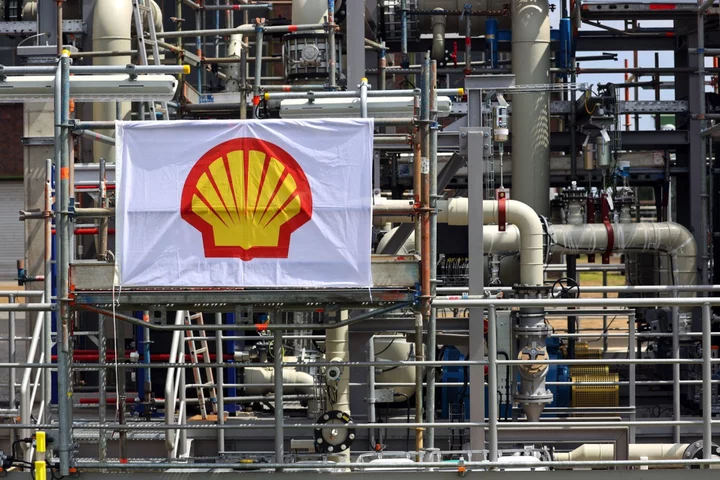Shell Plc paid net corporate taxes in the UK for the first time in at least four years after the government introduced an oil and gas windfall levy.
From 2018 — when it started publishing these figures — to 2021 Shell received tax credits from the UK’s treasury because of expenses tied to investments in new North Sea fields and rebates related to dismantling old platforms.
Last year, the company paid $40.5 million in tax from a UK profit of $1.81 billion, according to its annual tax-contribution report. Without the government’s new Energy Profits Levy, Shell said it wouldn’t have had to pay corporate tax in the UK.
The London-listed energy giant made a global profit of $64.8 billion in 2022 and paid out $13.1 billion in corporate income tax. That compares with $6 billion in corporate taxes in 2021 on a profit of $30 billion.
Even with the UK’s windfall levy, the tax bill was relatively small compared with neighboring Norway, where Shell paid $2.12 billion in corporate income tax on profits of $3.85 billion. That was the company’s second-largest tax bill after the $4.56 billion paid in Oman.
Following Russia’s invasion of Ukraine, several countries imposed windfall taxes on profits from the oil and gas industry as prices soared. Shell expects to pay windfall taxes of more than $1 billion on profit earned last year. Some of those were paid in 2022 and 2023, with the rest “due in coming years,” Chief Financial Officer Sinead Gorman said in the report.
The UK’s windfall tax is expected to apply until 2028. The European Union’s extra levy on the sector, known as a “solidarity contribution” is due to end in 2024. By the end of the third quarter of 2023, the company had paid an additional $437 million in windfall taxes.
Tax Free
There were other jurisdictions where Shell paid no corporate tax despite large earnings. In the Bahamas, the company posted a profit of $1.55 billion, up threefold from a year earlier. Shell trades West African and Latina American crude oil from the Caribbean island, but the Bahamas doesn’t impose “corporate income tax on international business companies operating in the country,” according to the report.
The report says that the company is present in low-tax jurisdictions for commercial reasons such as crude oil trading and retail sites, “We do not use these jurisdictions to avoid tax on activities that take place elsewhere,” according to the report.
Shell, like its Big Oil peers, doesn’t disclose the amount of money it makes from its trading business, which can add billions of dollars to its bottom line every year. In June, Chief Executive Officer Wael Sawan said the company’s traders provide a 2% to 4% uplift to return on average capital employed.
Shell publishes its global tax contributions on a voluntary basis and is separate to its report on payments to government, which is a legal requirement for oil, gas and mining companies incorporated in the UK.









